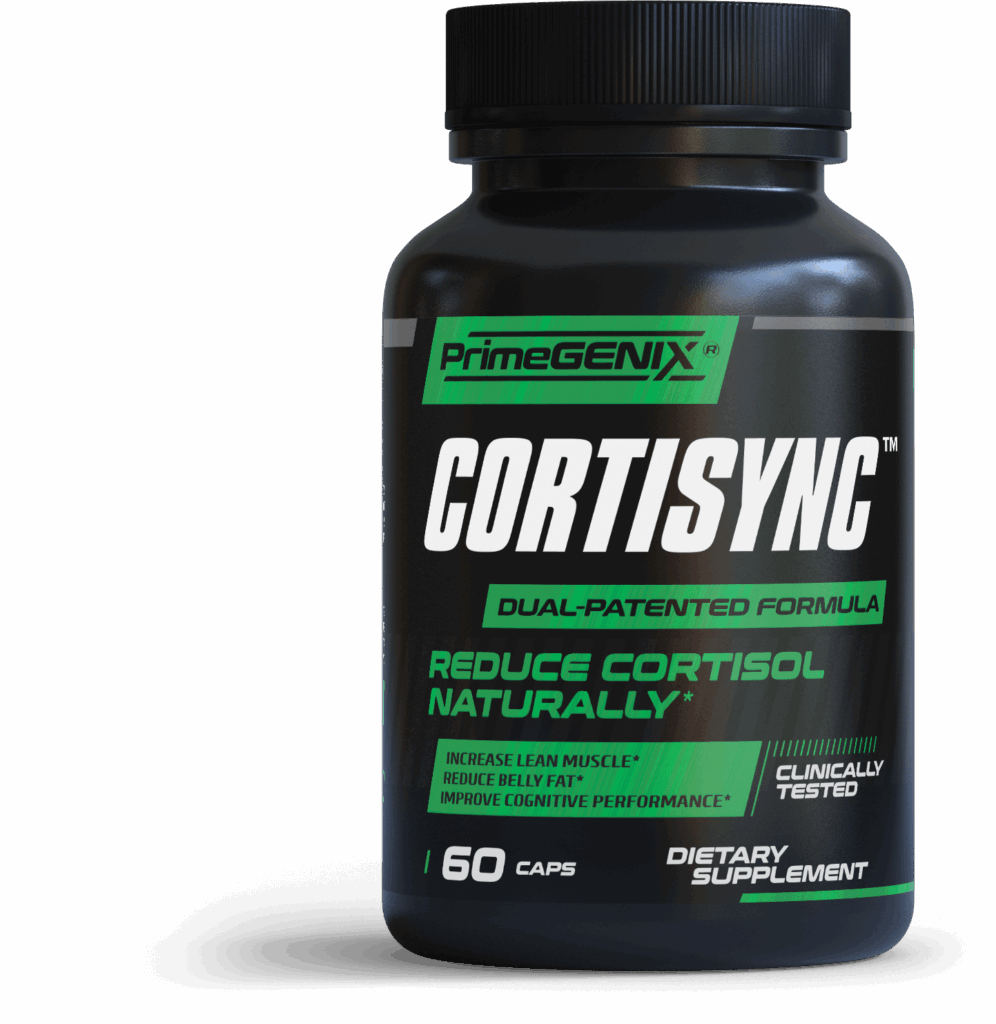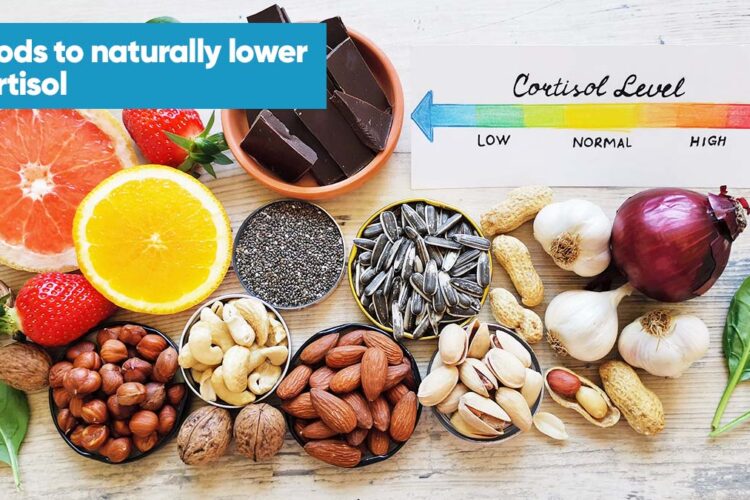In today’s fast-paced world, stress has become an unwelcome companion in many people’s lives. While occasional stress is normal, chronic stress can lead to consistently elevated cortisol levels, which can have far-reaching effects on overall health and well-being. Understanding and managing your cortisol levels is not just beneficial—it’s essential for optimal health.
What is Cortisol?
Cortisol is often referred to as the “stress hormone” because it’s released by the adrenal glands in response to stress. Under normal circumstances, cortisol follows a daily rhythm—highest in the morning to help you wake up and gradually decreasing throughout the day, reaching its lowest point around midnight (Nader et al., 2010).
This hormone plays several crucial roles in the body:
- Regulating metabolism
- Reducing inflammation
- Controlling blood sugar levels
- Supporting memory formation
- Influencing blood pressure
- Helping manage your sleep-wake cycle
However, when cortisol levels remain elevated for extended periods, these natural functions can become disrupted, leading to various health issues.
The Impact of Dysregulated Cortisol
When cortisol levels remain chronically high or become dysregulated, the consequences can affect virtually every system in your body:
Immune System Suppression
Sustained high cortisol levels can suppress immune function, making you more susceptible to infections and illnesses. Research has shown that chronic stress impairs the immune system’s ability to initiate and maintain proper responses to pathogens (Segerstrom & Miller, 2004).
Weight Gain and Metabolic Issues
Elevated cortisol has been linked to increased appetite, particularly for high-calorie, high-sugar, and high-fat foods. Studies have demonstrated that people with higher cortisol levels tend to have higher BMIs and larger waist circumferences (Epel et al., 2000). This “stress eating” combined with cortisol’s effects on metabolism can lead to weight gain, particularly around the abdomen—a risk factor for cardiovascular disease and type 2 diabetes.
Cardiovascular Health
Chronic stress and elevated cortisol have been associated with increased blood pressure, cholesterol, and triglyceride levels—all risk factors for heart disease. Research published in the Journal of Clinical Endocrinology & Metabolism found that higher cortisol levels were associated with increased cardiovascular mortality (Whitworth et al., 2005).
Mental Health Concerns
The relationship between cortisol and mental health is bidirectional. Stress increases cortisol, but dysregulated cortisol can also exacerbate mental health conditions. Studies have found links between abnormal cortisol patterns and depression, anxiety, and cognitive decline (Stetler & Miller, 2011).
Sleep Disruption
Cortisol plays a key role in regulating your sleep-wake cycle. When levels don’t properly decrease in the evening, insomnia and sleep disturbances can result. Poor sleep quality then creates a vicious cycle, as sleep deprivation itself can lead to increased cortisol production (Leproult et al., 1997).
Digestive Problems
The gut-brain connection means that stress and elevated cortisol can trigger or worsen digestive conditions such as irritable bowel syndrome (IBS), acid reflux, and inflammatory bowel disease (IBD). Research has demonstrated that stress alters gut permeability and can affect the gut microbiome (Konturek et al., 2011).
Strategies for Maintaining Healthy Cortisol Levels
The good news is that there are numerous evidence-based approaches to help regulate cortisol levels:
Regular Physical Activity
Exercise has been shown to help regulate cortisol levels over time. While intense exercise temporarily increases cortisol, regular moderate exercise actually helps normalize cortisol rhythms and improve stress resilience (Anderson & Wideman, 2017).
Mindfulness and Meditation
Practices such as mindfulness meditation, deep breathing, and yoga have been demonstrated to reduce cortisol levels. A meta-analysis of 45 studies found that mindfulness-based interventions were effective at reducing cortisol levels (Pascoe et al., 2017).
Adequate Sleep
Prioritizing quality sleep is crucial for cortisol regulation. Establishing a consistent sleep schedule, creating a restful environment, and practicing good sleep hygiene can help maintain proper cortisol rhythms (Hirotsu et al., 2015).
Balanced Nutrition
A well-balanced diet rich in whole foods, vegetables, fruits, lean proteins, and healthy fats helps support adrenal function and cortisol regulation. Research suggests that reducing sugar, processed foods, and caffeine intake can help stabilize cortisol levels (Hewagalamulage et al., 2016).
Social Connection
Positive social interactions and strong social support have been linked to lower cortisol levels. Studies have shown that spending time with loved ones and fostering meaningful relationships can buffer against the negative effects of stress (Heinrichs et al., 2003).
Supplementation
Certain supplements have been studied for their potential cortisol-regulating effects. These include ashwagandha, phosphatidylserine, vitamin C, omega-3 fatty acids, and magnesium. Research on ashwagandha, for example, has shown it may help reduce cortisol levels by up to 30% in chronically stressed individuals (Chandrasekhar et al., 2012).
Monitoring Cortisol Levels
For those concerned about their cortisol levels, several testing options are available:
- Blood tests (usually measuring morning cortisol)
- Saliva tests (can track cortisol patterns throughout the day)
- Urine tests (measuring cortisol production over 24 hours)
Working with a healthcare provider is recommended for proper interpretation of results and personalized recommendations.

PrimeGENIX® Cortisync: A Comprehensive Approach to Cortisol Management
For those seeking additional support in managing cortisol levels, supplements like PrimeGENIX® Cortisync offer a potential option. Formulated with a blend of adaptogens and nutrients, Cortisync is designed to help maintain healthy cortisol balance and support the body’s response to stress.
What sets Cortisync apart is its comprehensive formula that addresses multiple aspects of stress and cortisol management. The supplement contains ingredients like ashwagandha, rhodiola rosea, and holy basil—adaptogenic herbs that have been studied for their stress-mitigating properties. These adaptogens work with the body to help modulate cortisol production, potentially helping to maintain levels within a healthy range rather than suppressing cortisol entirely (which would be undesirable, as cortisol serves important functions when properly regulated).
Beyond cortisol management, Cortisync is formulated to support overall adrenal health and function, potentially helping to address the fatigue and energy issues that often accompany chronic stress. By supporting the body’s natural stress response systems, rather than simply masking symptoms, Cortisync represents a holistic approach to stress management that complements the lifestyle strategies discussed earlier in this article.
Conclusion
Maintaining healthy cortisol levels is essential for overall well-being and long-term health. By understanding how this important hormone works and implementing strategies to keep it balanced, you can improve your resilience to stress, enhance your energy levels, and potentially reduce your risk of numerous health conditions. Whether through lifestyle modifications, stress management techniques, or supplementary support, taking steps to optimize your cortisol levels may be one of the most important things you can do for your health in today’s high-stress world.
References
Anderson, T., & Wideman, L. (2017). Exercise and the Cortisol Awakening Response: A Systematic Review. Sports Medicine – Open, 3(1), 37.
Chandrasekhar, K., Kapoor, J., & Anishetty, S. (2012). A prospective, randomized double-blind, placebo-controlled study of safety and efficacy of a high-concentration full-spectrum extract of ashwagandha root in reducing stress and anxiety in adults. Indian Journal of Psychological Medicine, 34(3), 255-262.
Epel, E. S., McEwen, B., Seeman, T., Matthews, K., Castellazzo, G., Brownell, K. D., Bell, J., & Ickovics, J. R. (2000). Stress and body shape: stress-induced cortisol secretion is consistently greater among women with central fat. Psychosomatic Medicine, 62(5), 623-632.
Heinrichs, M., Baumgartner, T., Kirschbaum, C., & Ehlert, U. (2003). Social support and oxytocin interact to suppress cortisol and subjective responses to psychosocial stress. Biological Psychiatry, 54(12), 1389-1398.
Hewagalamulage, S. D., Lee, T. K., Clarke, I. J., & Henry, B. A. (2016). Stress, cortisol, and obesity: a role for cortisol responsiveness in identifying individuals prone to obesity. Domestic Animal Endocrinology, 56, S112-S120.
Hirotsu, C., Tufik, S., & Andersen, M. L. (2015). Interactions between sleep, stress, and metabolism: From physiological to pathological conditions. Sleep Science, 8(3), 143-152.
Konturek, P. C., Brzozowski, T., & Konturek, S. J. (2011). Stress and the gut: pathophysiology, clinical consequences, diagnostic approach and treatment options. Journal of Physiology and Pharmacology, 62(6), 591-599.
Leproult, R., Copinschi, G., Buxton, O., & Van Cauter, E. (1997). Sleep loss results in an elevation of cortisol levels the next evening. Sleep, 20(10), 865-870.
Nader, N., Chrousos, G. P., & Kino, T. (2010). Interactions of the circadian CLOCK system and the HPA axis. Trends in Endocrinology & Metabolism, 21(5), 277-286.
Pascoe, M. C., Thompson, D. R., Jenkins, Z. M., & Ski, C. F. (2017). Mindfulness mediates the physiological markers of stress: Systematic review and meta-analysis. Journal of Psychiatric Research, 95, 156-178.
Segerstrom, S. C., & Miller, G. E. (2004). Psychological stress and the human immune system: a meta-analytic study of 30 years of inquiry. Psychological Bulletin, 130(4), 601-630.
Stetler, C., & Miller, G. E. (2011). Depression and hypothalamic-pituitary-adrenal activation: a quantitative summary of four decades of research. Psychosomatic Medicine, 73(2), 114-126.
Whitworth, J. A., Williamson, P. M., Mangos, G., & Kelly, J. J. (2005). Cardiovascular consequences of cortisol excess. Vascular Health and Risk Management, 1(4), 291-299.





